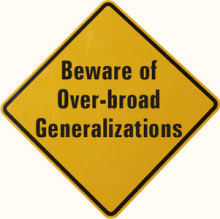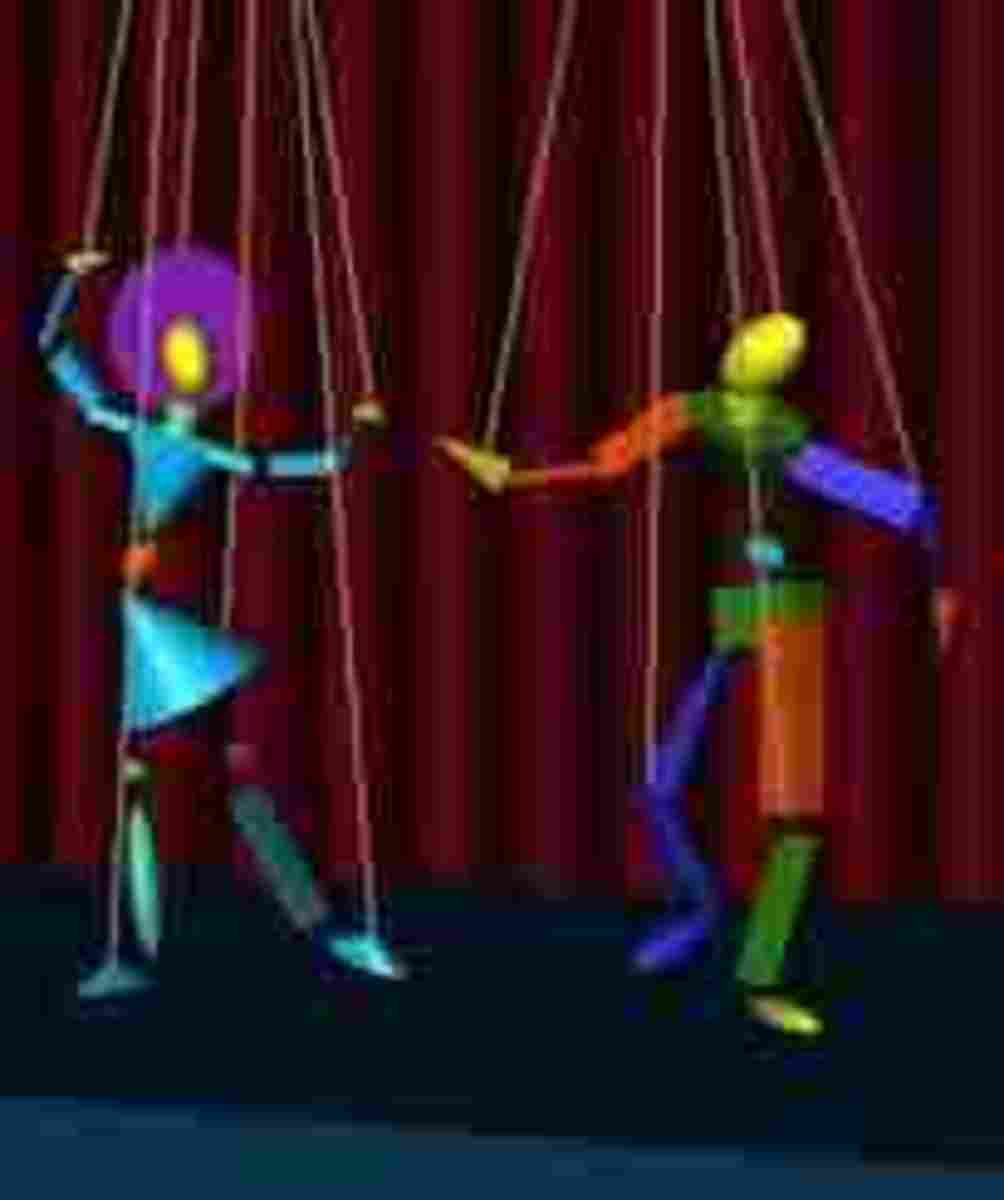- HubPages»
- Health»
- Mental Health»
- Mental Health Self-Help
Why We Jump to Conclusions
Do You Jump to Conclusions?

Making Quick Judgments
We rush to make quick judgements about other people without knowing the story. We make judgements about the character and personality of someone else with the limited information we observe. this is known as the fundamental attribution error.
We interpret the behavior we see and believe it is part of that person’s nature. The reality is that sometimes it is the situation. We make these errors because we have jumped to conclusions. We wholeheartedly believe the guess we have made and make it a fact in our mind. This is also known as passing judgment.
Thinking Errors
Rationalizing Our Observations
We try to understand and rationalize what happens by explaining our observations through what we know from our own experiences. We tend to pay more attention to the situation rather than the person. It becomes easier than we realize to misjudge the person when we hardly know them. We use our internal attributes and ignore the external factors that in reality may be the real reason for the person’s behavior.
How often when you are driving and you encounter an unpredictable driver do you say, they are an idiot, or something else about them. You don’t know them. You don’t know if they are having a rough day, or they don’t feel well, or they just have a lot on their mind, or something is wrong with the car. We have all made statements like this. We look to blame the person without knowing anything about them.
Negative Reasoning
Our brains are pre-programmed to take in information quickly and somewhat automatically so that we can process what is going on in our environment. This allows us to keep pace with the world around us, and not have to stop and consciously reason out every event that happens to us.
Ideally, this would be an efficient design within us when we are correct. But when we are wrong, because we jump to conclusions using negative reasoning, it can cause us to feel hurt and angry. In essence we made up the whole story, with no facts to back up our thinking.
As an example, a girlfriend did not get a phone call back from her boyfriend when he promised. She believes he is inconsiderate, unreliable, and he breaks his promises. She then concludes he doesn’t love her and she feels hurt and angry. She doesn’t want to see him when he calls later that night. In reality, the boyfriend’s battery was not charged, and this had nothing to do with his feelings towards her. But she made a fundamental attribution error.
Thinking errors happens all the time to everyone. It is a natural tendency. It is a type of mental bias. We jump to conclusions because we think too fast, we don’t give people the benefit of the doubt. Sometimes it is a matter of asking ourselves what makes a person act that way. We make assumptions about character flaws. If we are a little slower to anger, we may look at things in a more positive light and find greater happiness in our day.
Mental Shortcuts
When we make inferences about situations that are inaccurate we are blaming people for things that may be incorrect. We look to place ourselves in the best light. We look to make predictions as short cuts to our thinking. We look to explain circumstances to help us make sense of our world. Some people are more optimistic, some are more pessimistic and this type of thinking influences our views. Our past affects our current perceptions, and can distort our beliefs.
We make fundamental attribution errors by blaming others and outside forces, instead of taking responsibility and making ourselves accountable. When you are driving and someone blows their horn at you, you think it is them, that you didn’t make a mistake. Sometimes it is the other person, but sometimes it might be you. We look to blame outside forces. It is known in psychology as self serving bias. When we do well, we believe it is our own personal good qualities that we attribute to our success. It is done as a way to protect our self esteem.
The fundamental attribution error is the tendency to ignore situational variables that are present and attribute the cause to internal characteristics. We tend to minimize outside variables.
Jumping to Conclusions and Our Own Perspectives

The Attribution Errors We Make
People blame other people for the things they usually don’t have any control over. They will blame the victim for what happened to themselves, as though the victim didn’t do enough to protect themselves from the event.
When it comes to ourselves, and explaining our own behavior, we do the opposite of the fundamental attribution error. We blame outside forces instead of our own personal traits. This is known as the actor observer bias.
The fundamental attribution error comes from taking bits of information that is easily observable and take threads of information and jump to perhaps erroneous conclusions. We rarely do this with people we know well because we usually have enough information to fill in the gaps, we can understand their point of view, and can see situational causes for their behavior.
We rarely blame ourselves for our own mishaps. When we make assumptions, it helps us make sense of the circumstances. When we watch other people we attribute their behavior to their character traits rather than to the situation When it comes to ourselves, we minimize our own role in the situation and emphasize the situation. It don’t think it has anything to do with us.
This type of reasoning is called the attribution theory. How we attribute the causes of things tells us important things about how the mind works. We make assumptions based on our perceptions of maybe one thing we see or know and to us, that is the cause. We need to look for causes to unconfuse our world, to help us make sense of things. The fundamental attribution error is part of a wider pattern to blame others to find causes for things. It may happen because we focus more on the person than the situation. When we think about what we are doing, we focus more on the situation, known as situational attributions, which allows us to explain things we have done on forces beyond our control. When we look at others, we usually blame the person.
There are lots of problems with the fundamental attribution error, mostly coming from our own thinking errors and cognitive biases. The way we perceive events can be distorted from our own past experiences, our own needs, and our own expectations and anticipations.
-
self serving bias - attributing your errors to outside situations. psychologists believe we do this to help protect our own self esteem.
-
fundamental attribution error - WE make the person’s characteristics the cause and tend to ignore that the situation could be a factor in their behavior
Mistaken Thinking

How We View the World
It is important to understand these errors we make so that you don’t blame others for things that may not be in their control, and that we don’t let others blame us for this same reasons.
There are many factors that may bring us to these wrong conclusions. Our view of the world, our prior experiences with that person, and what we know about the behavior.
The less we know about the person, the more we believe their behavior has to do with their personal characteristics. Yet we know little or nothing about this person, and this is what causes the thinking error.
Regarding ourselves, we tend to believe our successes happen because of our internal traits, and believe our failures are due to outside forces
For example, when we get a promotion, we believe it happened because of our internal good qualities such as our intelligence, hard work, etc. When we get fired, we attribute the cause to boss not being able to recognize our good qualities, or that the boss is probably stupid. While this could be true, it may also be an attribution error because we may not be taking responsibilities for the things we may have done incorrectly. People who are depressed believe they got the promotion because the boss didn’t recognize their bad qualities and made a mistake in the promotion, and they believe they were fired because of their internal bad qualities.
How we see the world is a reflection of how we see ourselves. People who are happier tend to see things in a more positive view than people who tend to be depressed.
Being aware of the fundamental attribution error can help you understand yourself and others better. We may always tend to jump to conclusions, just because it is natural to want to explain away what we see happening. But if we can give a little more consideration to what we are thinking, we might just change our interaction with others for the better.







